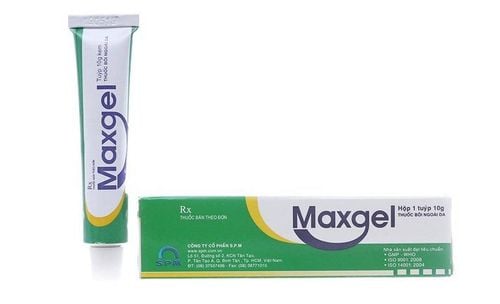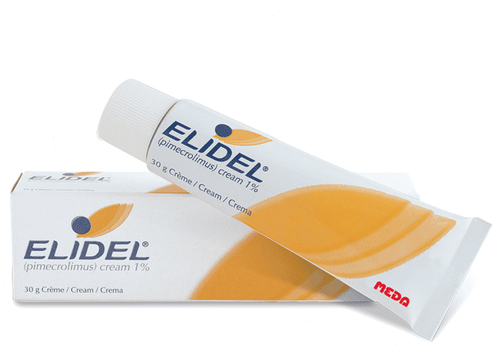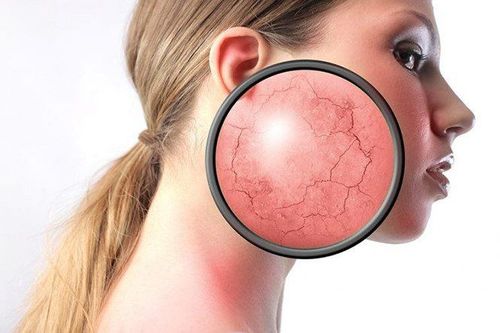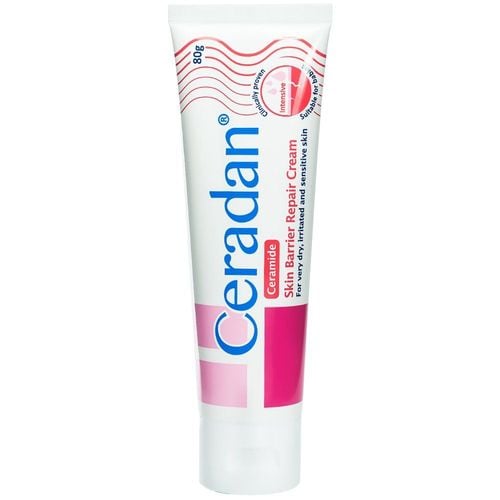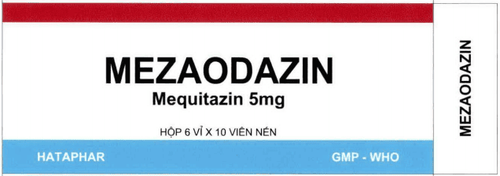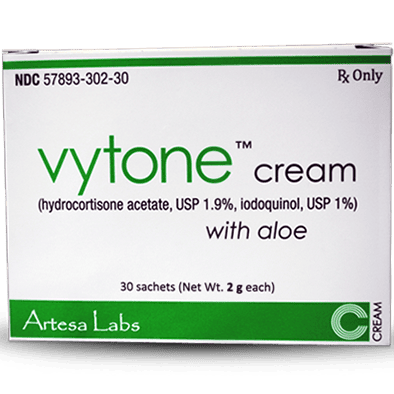This is an automatically translated article.
Psoriasis and eczema are both skin diseases with similar itchy symptoms. The following article will show the difference between psoriasis and eczema.1. Understanding Psoriasis and Eczema
Psoriasis is a chronic autoimmune condition that leads to an overproduction of skin cells, resulting in dead cells accumulating into silvery white scales. Psoriasis causes the skin to become inflamed, red, and have thick white scaly patches on the skin that are characteristic of psoriasis. There is currently no cure for psoriasis. But some topical, light-based, and systemic treatments can put the condition into remission. This disease is not contagious.
Eczema, also known as atopic dermatitis or eczema, occurs due to a sensitive skin reaction, which causes the skin to overreact to certain agents such as dyes, fabrics, soaps, animals and other stimulants. Eczema is very common in babies. With eczema, the skin may appear red, inflamed, flaky, cracked, blistered, or pus-filled, but it doesn't have the scaly dead skin that resembles psoriasis. Most eczema can be treated with topical treatment.
Although both diseases share the same symptom of itching. But eczema causes intense itching and can be scratched to the point of bleeding. As for psoriasis, in addition to itching, there is also a feeling of stinging or burning under the skin, it is similar to the feeling of being bitten by a fire ant.
2. Where psoriasis and eczema often appear
Psoriasis often appears on places like elbows, knees, scalp and face, palms, soles of feet. In addition, it can also form scaly patches in other areas such as fingernails and toenails, mouth, lips, and eyelids. Psoriasis can develop in very uncomfortable places. Inverse psoriasis and other types of psoriasis can develop on the genitals, armpits, bottom of the feet, and skin wrinkles. Affected areas often have large, solid patches, possibly due to the high humidity in these areas.
Eczema can occur in many inconvenient places, especially for babies. Baby diapers and creams can irritate sensitive skin, causing extreme diaper rash. In some cases, eczema covers the entire diaper area, because a child's hypersensitivity to the material of the diaper or the creams used in washing the genital area can aggravate the condition. Adults with eczema in sensitive areas may need to change detergents, cleaners, and fabrics.

Vảy nến xuất hiện ở gáy và cổ
3. Psoriasis and Eczema Triggers
Eczema usually comes from things that irritate your skin, like:
Soaps Detergents Disinfectants Juices from produce or meat Allergens can also cause eczema, like:
Dust Pets Pollen Mold Dandruff Certain foods Infections can start eczema. Psoriasis also shares common triggers of stress and infection. But psoriasis can flare up when the skin is injured, for example:
Vaccinations Sunburns Scratches Some medications can also cause psoriasis, like treatment for bipolar disorder or medicine for malaria .
4. The common age of psoriasis and eczema
Eczema usually begins in infants or young children. Usually, symptoms of the disease improve as a child becomes an adult. Eczema that occurs in adulthood is often due to a health condition such as thyroid disease, hormone changes, or stress.
Psoriasis usually appears between the ages of 15 and 35. But it can also develop at other ages, but very rarely in young children.

Bệnh chàm ở trên mặt
5. Psoriasis and Eczema on the Face
Psoriasis most commonly occurs on the knees and elbows, however it can occur anywhere such as the face, scalp and neck. With treatment, psoriasis on the face and scalp usually clears up on its own, but it can recur. In many cases, scalp psoriasis that extends over the forehead, ears, or neck makes it difficult to treat, due to tangled hair.
Like psoriasis, eczema on the face can be uncomfortable, causing a lot of itching, broken skin, bleeding, or infection. Dry skin associated with eczema can also cause cracked skin, eczema often includes pus-filled blisters, which when scratched can cause the skin to ooze pus and create patches of flaky and scaly skin. Facial eczema can often be treated topically, but systemic medication may be necessary.
6. Psoriasis vs Eczema on Hands
Many people have psoriasis patches on the backs of their hands, knuckles, and palms. Manifestations such as when washing or washing hands also cause peeling and drying of the skin on the hands causing pain and discomfort. Psoriasis on the hands can include nail psoriasis, which causes overactive skin cells to create too many new cells under the nail. This phenomenon resembles a fungal infection that discolors the nails and even peels them off.
Eczema on the hands is very common, due to frequent contact with soaps, lotions, animals, and other allergens or irritants. Frequent hand washing can dry out the skin. Eczema on the hands can be difficult to treat due to the constant exposure of the hands to water and other irritants.
7. Psoriasis and Eczema of the Feet
Psoriasis frequently occurs on the legs and knees. Psoriasis on the feet will appear as many small red scaly patches that look like teardrops. However, plaque psoriasis on the feet often presents as large, shapeless patches with thick red skin or thick white scales.
Foot eczema often occurs in body lines, wrinkles like the back of the knee or the front of the ankle. These areas may have a lot of sweat or irritants from clothing and the air. The close contact of irritants with the skin and areas of skin rubbing together creates a perfect environment for atopic dermatitis to thrive. If eczema on the back of the knees is not treated quickly or effectively, it can become very uncomfortable and painful. Continuous contact from clothing can cause bleeding, oozing, and infection.
8. Dryness in Psoriasis and Eczema
Not all psoriasis plaques are dry or scaly. Sometimes, large red patches may not have obvious scales. However, patches of psoriasis can build up from dead skin cells to the point of peeling. Scaling should be done gently to prevent breaking the skin and causing bleeding. Some psoriasis plaques can build up a very thick, white layer of dead cells before scabbing.
Eczema is frequently covered with patches of very dry skin. These can make the skin so fragile that it cracks easily. The flaking of eczema can look like a sunburn or calluses. In some cases, the skin may peel off without causing raw skin or open wounds so it should be treated carefully to avoid bacterial or viral infection.
9. Severe conditions of psoriasis and eczema
Like most skin conditions, psoriasis can be widespread and very uncomfortable. For example, plaque psoriasis can cover almost the entire surface of the body. In extreme cases, the inflammation can become so severe that it appears and feels like a burn. Persistent psoriasis is very painful and can be life-threatening.
Eczema can also become very severe and cover most of the skin's surface. The amount of skin affected by eczema will depend on the sensitivity of the skin to the irritant and the effectiveness of the treatment. Cracking, oozing, and bleeding in severe cases of eczema can become dangerous. Widespread eczema is highly susceptible to infection and increases the chance of skin breaking.
10. Treats Psoriasis and Eczema
At the beginning of psoriasis treatment, topical corticosteroid cream is usually used, if there is no improvement, then light therapy is used. If neither method improves psoriasis plaques, your doctor may prescribe an oral or intravenous medication. These medications are the last step in most treatment plans.
Eczema is usually treated with topical corticosteroid creams. In some cases, antibiotic creams or prescription oral medications may be needed. Certain protective creams may also be helpful to protect the skin from irritants and infections, which can be healed.
Vinmec International General Hospital is one of the hospitals that not only ensures professional quality with a team of leading medical doctors, modern equipment and technology, but also stands out for its examination and consultation services. comprehensive and professional medical consultation and treatment; civilized, polite, safe and sterile medical examination and treatment space.
Customers can directly go to Vinmec Health system nationwide to visit or contact the hotline here for support.




